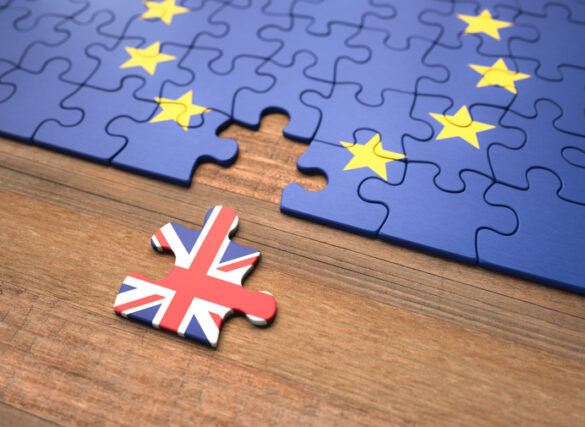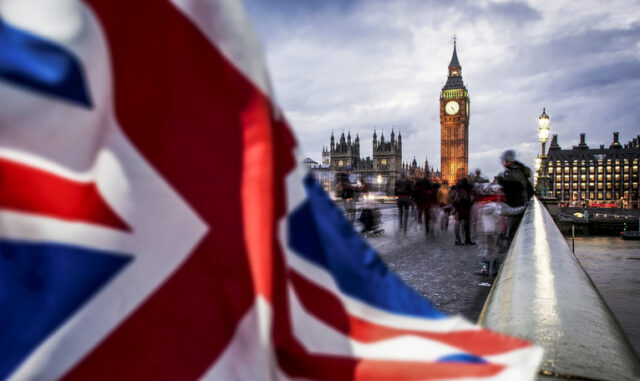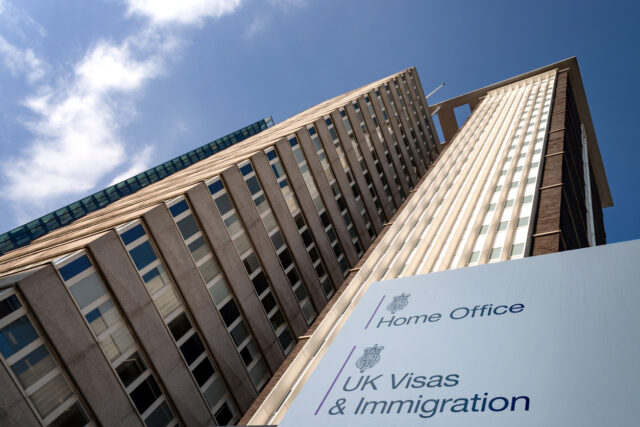The UK hasn’t just changed—it’s done so in ways people can feel, but struggle to name.

Sure, there are the obvious things like the cost of living crisis, the lack of funding for public services, and a sluggish economy, but it’s more than that. It’s the general feeling of life in Britain that’s completely different than it was even a decade or two ago, and it’s impossible to ignore. Here’s what many Brits are actually noticing, and why life here just doesn’t feel like it used to.
1. Brexit changed more than the borders.

Leaving the EU didn’t just reshape trade agreements—it reshaped the mood of the country. Labour shortages in sectors like farming, hospitality, and healthcare are still being felt. British exports became more complicated, and businesses large and small took the hit.
However, perhaps more lasting than the paperwork is the division it left behind. Brexit opened up cultural fault lines that haven’t healed. The sense of collective British identity, once quiet and resilient, now feels fractured, politicised, and uncertain.
2. The cost of living crisis never really ended.

While inflation stats may fluctuate, the squeeze on daily life hasn’t eased. Energy bills are still high. Food costs are still elevated. Rent is unaffordable for many. Even those with decent jobs now find themselves budgeting in ways they didn’t five years ago.
It’s not just the numbers—it’s the change in mindset. People used to save for holidays or weekends away. Now they’re asking whether they can justify heating the house properly or buying name-brand basics. That constant tension has changed how life feels.
3. Everyday public services are collapsing quickly.

Street cleaning, bin collection, road maintenance—basic council services have been scaled back to the point of invisibility. Overflowing bins and litter-strewn parks aren’t rare anymore; they’re expected. Once-routine public upkeep now feels like a luxury. This decay contributes to a wider sense that things just aren’t being looked after. When the basics go neglected, people don’t just get annoyed—they start to feel like the country itself is sliding into managed decline.
4. People no longer treat public spaces with care.

Fly-tipping, vandalism, littering—these aren’t just occasional problems anymore. They’ve become part of the backdrop in many communities. Whether it’s graffiti left untouched for months or smashed bus stops ignored, there’s been a clear drop in how people respect shared environments. The reasons are layered: frustration, apathy, disconnection. Still, the result is the same—an everyday landscape that feels more neglected, less communal, and far less cared for than it once did.
5. Austerity made long-term damage feel normal.

Years of cuts to local councils, youth services, libraries, and care programmes have left holes that were never patched. Entire generations have grown up without community centres or accessible support. It’s not just about budgeting—it’s about the slow erosion of social glue. Many places feel forgotten, and for those living in them, that lack of investment has turned into a silent resignation: this is just how things are now.
6. Economic inequality is baked into daily life.

There’s a widening gap between those who can plan for the future and those barely scraping by. The UK’s economy relies heavily on London, and it shows. Towns in the North, Midlands, and coastal areas often lack access to stable work, high-speed transport, or fresh investment. Young people talk of “escaping” their hometowns rather than building a life in them. The national story no longer feels evenly spread—it feels like multiple different realities stitched awkwardly together.
7. Politics has stopped feeling representative.

Across the spectrum, people are losing faith that politicians reflect their concerns. From post-Brexit divisions to party scandals and sudden U-turns, there’s a sense that decisions are made for optics, not impact. The problem isn’t just partisanship, it’s fatigue. Many feel that no matter who’s in charge, public services keep declining, and nothing meaningful improves. The social contract feels weaker. And trust? Near-empty.
8. Cultural identity feels diluted, or lost.

What does it mean to be British in 2025? For some, it means feeling left behind by rapid social and cultural change. For others, it means rejecting the idea altogether, uncomfortable with how it’s been politicised. Pop culture, humour, values—things that once felt “very British” now seem either globalised or divisive. People used to joke about Britishness. Now, they’re not sure if it even applies to them anymore.
9. Immigration remains a tense, unhealed subject.

Immigration has become one of the UK’s most emotionally loaded topics. While many recognise the economic and cultural value migrants bring, public debate remains dominated by rhetoric, resentment, and oversimplification. Concerns over housing, NHS strain, or jobs are often pointed at immigration rather than systemic underinvestment. This has created divisions, not only between political parties, but within communities themselves.
10. The population is ageing, but systems aren’t adapting.

The UK’s ageing population brings serious challenges—more demand on the NHS, social care shortages, and a shrinking pool of younger workers. However, support structures haven’t caught up. Many older people feel invisible. Many younger people feel like they’ll be left to pick up the pieces.
Without urgent rebalancing, these pressures will only deepen. It’s not just a demographic concern—it’s an emotional one. People want to feel that the country will look after them, no matter their age. Right now, that confidence is eroding.
11. Young people don’t believe the system works for them.

Rising rent, insecure work, unaffordable homes, and stagnant wages—many under 35s feel like they’re playing a game where the rules were changed before they even joined. The pathway to “adulthood” their parents had is all but closed. That disconnect isn’t just economic—it’s emotional. Many feel alienated from the institutions, traditions, and even hopes that once defined British life. It’s not rebellion—it’s loss.




